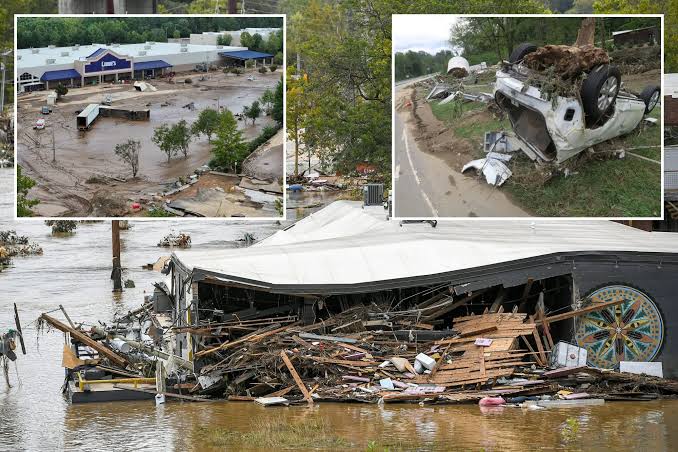There Is Hope For A Brighter Future For Those Impacted By This Devastating Hurricane.

In the wake of Hurricane Helene, the
federal government has stepped up its
response to support the affected
communities. With over $20 million
allocated for disaster relief, the
administration is committed to providing
essential assistance to survivors
grappling with the storm’s devastating
impacts. This financial aid, combined
with President Biden’s deployment of
1,000 troops to assist in recovery efforts
in Western North Carolina and Upstate
South Carolina, underscores the urgent
need for a robust and coordinated
response to this natural disaster.
Hurricane Helene struck with ferocity,
leaving behind a trail of destruction that
has profoundly affected thousands of
residents. Homes were damaged of
destroyed, infrastructure was
compromised, and communities were
left reeling. In response, the federal
government has mobilized resources to
ensure that those impacted receive the
necessary support to begin rebuilding
their lives. The $20 million in federal
assistance will be utilized for immediate
needs such as housing, food, and medical
care, as well as longer-term recovery
efforts aimed at restoring communities
to their pre-hurricane conditions.
President Biden’s decision to deploy
troops is a significant move that
highlights the seriousness of the
situation. These military personnel are
not only providing logistical support but
are also engaged in critical operations
such as search and rescue, distribution of
supplies, and infrastructure repair. Their
presence in the affected areas ensures
that the federal response is both swift
and effective, helping to alleviate some
of the immediate challenges faced by
local authorities and relief organizations.
Local governments, in collaboration with
federal agencies, have also been working
tirelessly to assess damage and prioritiz
recovery efforts. Emergency
management teams are conducting
assessments to identify the most pressing
needs of residents and determine how
best to allocate resources. This
collaborative approach is essential for
ensuring that aid reaches those wh need
it most, particularly vulnerablek
populations who may face additional
challenges in accessing assistance.
The emotional toll of Hurricane Helene
cannot be understated. Many survivors
are facing not only the loss of their
homes but also the psychological impacts
of the disaster. The federal assistance
package includes provisions for mentalm
health support, recognizing that
recovery extends beyond physical
rebuilding. Counseling services and
community support initiatives are being
implemented to help residents cope with
the trauma and stress associated with
such a catastrophic event.
As recovery efforts unfold, community
resilience plays a vital role. Residents are
coming together to support one another,
forming volunteer groups to assist in
clean-up efforts and providing mutual
aid. Local businesses are stepping up as
well, offering discounts and services to
help their neighbors get back on their
feet. This spirit of cooperation is a
testament to the strength of these
communities, demonstrating that even in
the face of adversity, people can unite to
support one another.
Looking ahead, the federal response will
need to evolve as recovery progresses.
While immediate aid is critical, long-
term rebuilding efforts will require
sustained investment and planning. This
includes not only repairing
infrastructure but also implementing
measures to mitigate the impact of future
disasters. Climate change and extreme
weather patterns necessitate a re-
evaluation of building codes, land use
planning, and emergency preparedness
strategies. Federal, state, and local
governments must work collaboratively
to ensure that communities are better
equipped to withstand future storms.
In conclusion, the federal assistance
provided to Hurricane Helene survivors
marks a crucial step in the recovere
process. The combination of financial aid
and military support underscores the
seriousness of the situation and the
commitment to helping affected
communities rebuild. As the recovery
efforts continue, the resilience of
individuals and communities will be
pivotal in overcoming the challenges
ahead. With ongoing support and
collaboration, there is hope for a brighter
future for those impacted by this
devastating hurricane.



